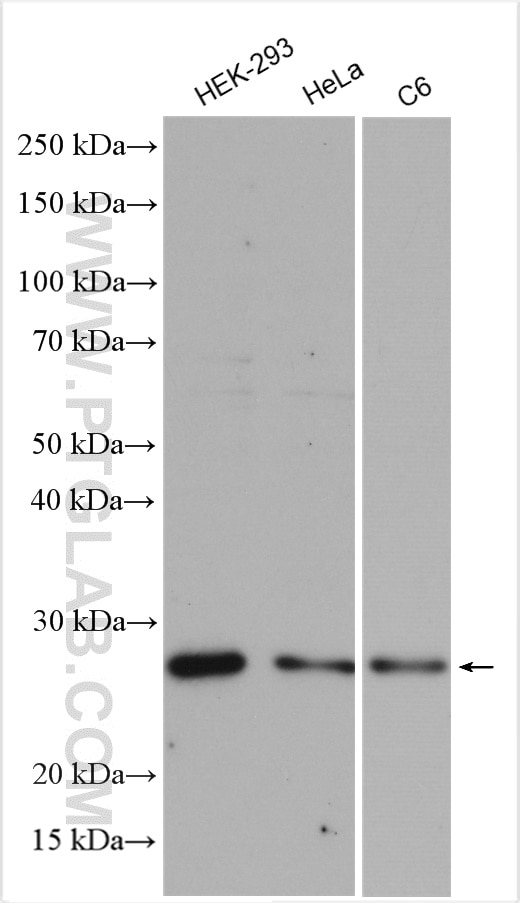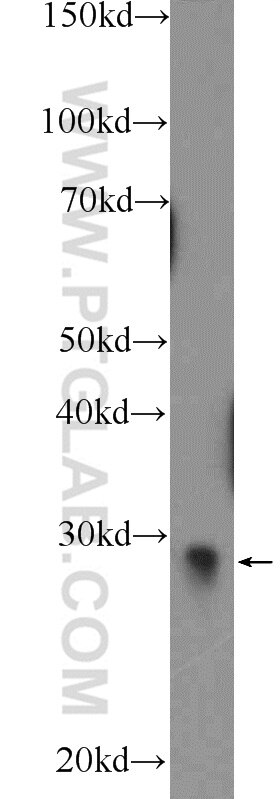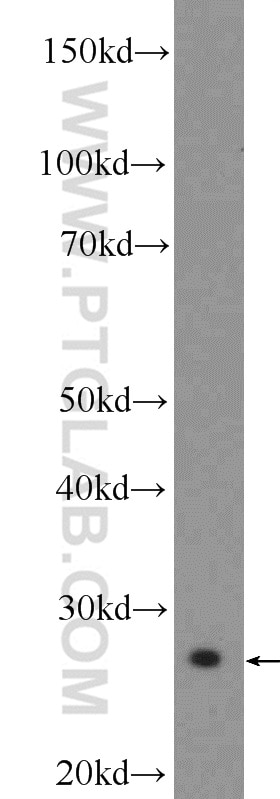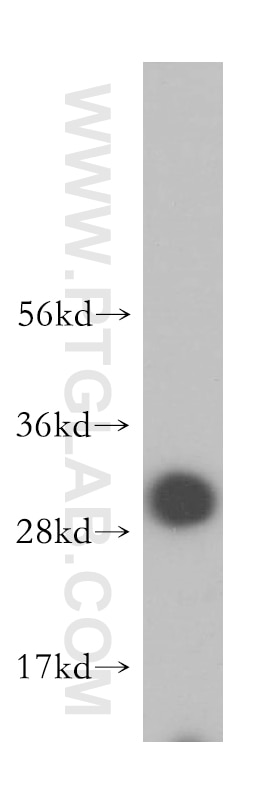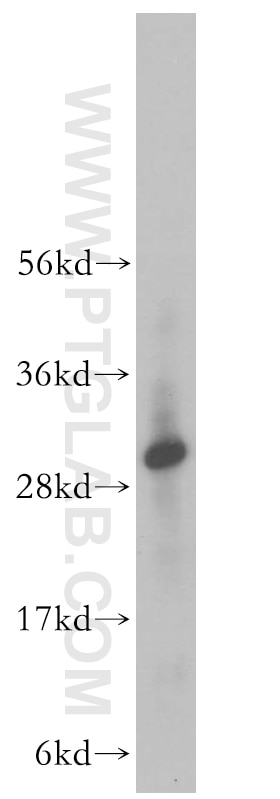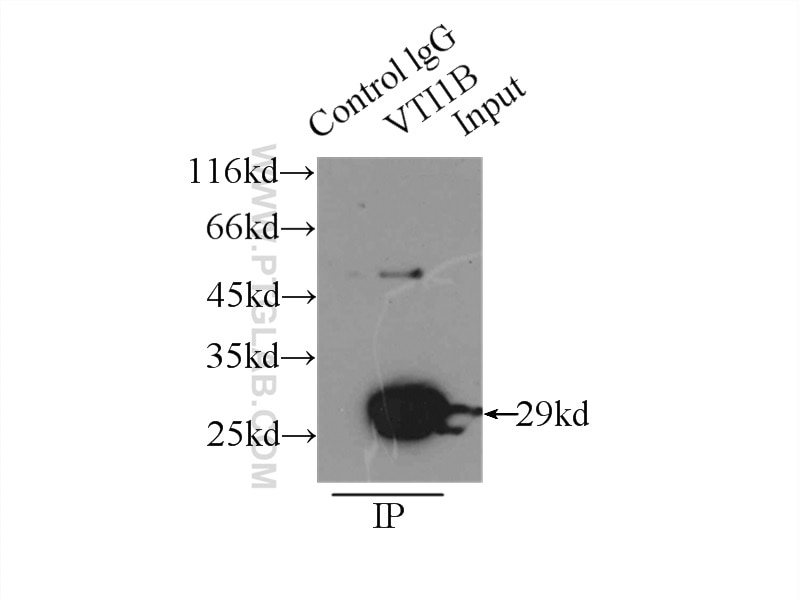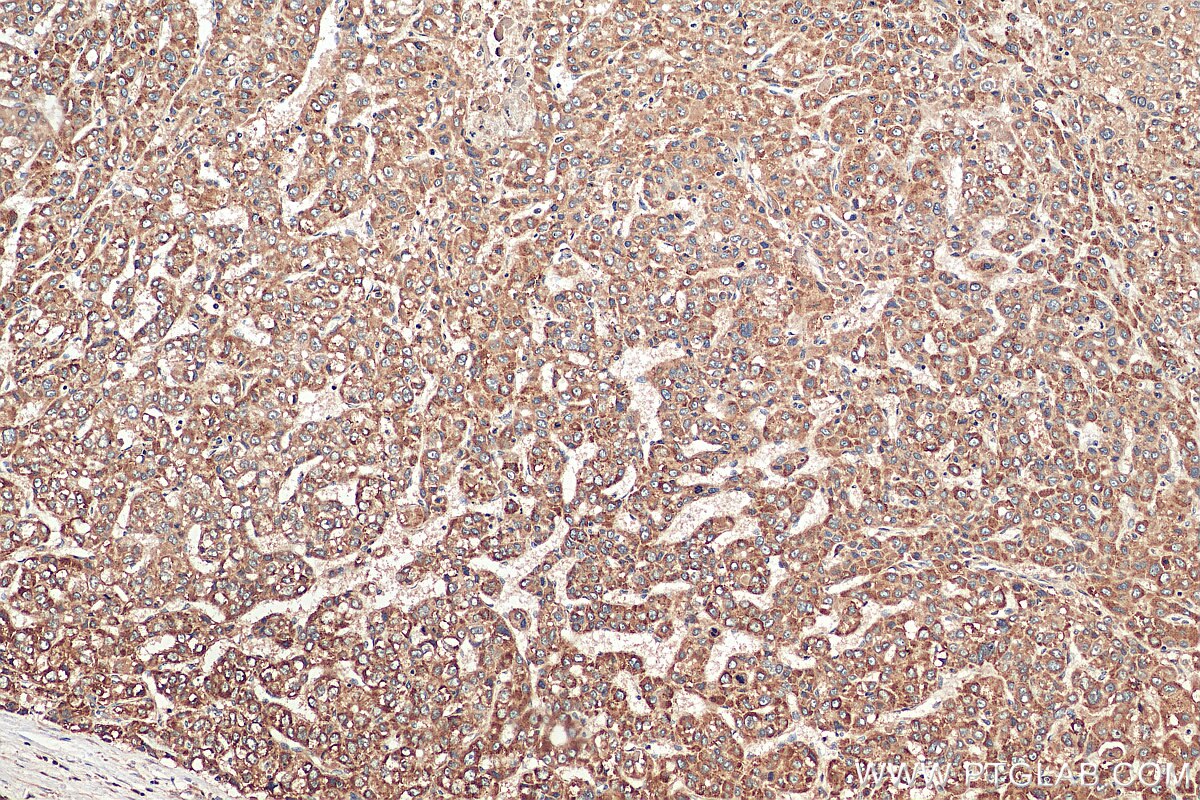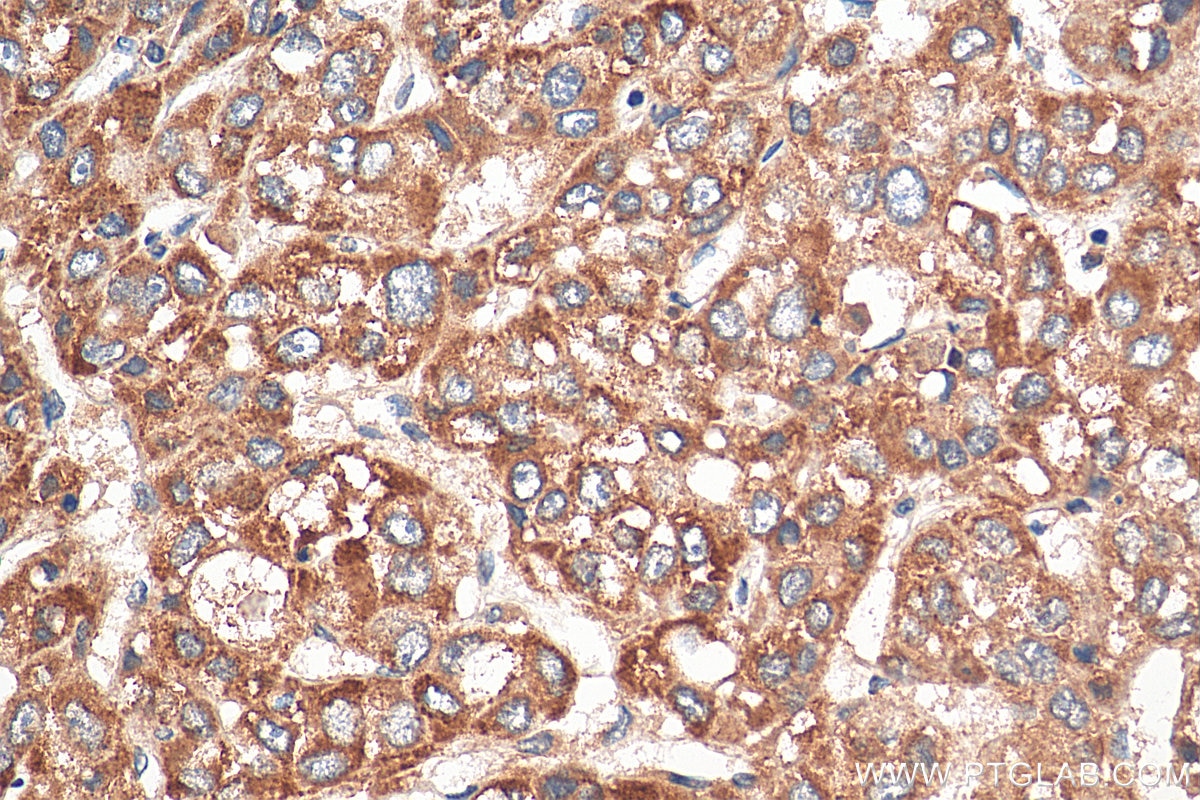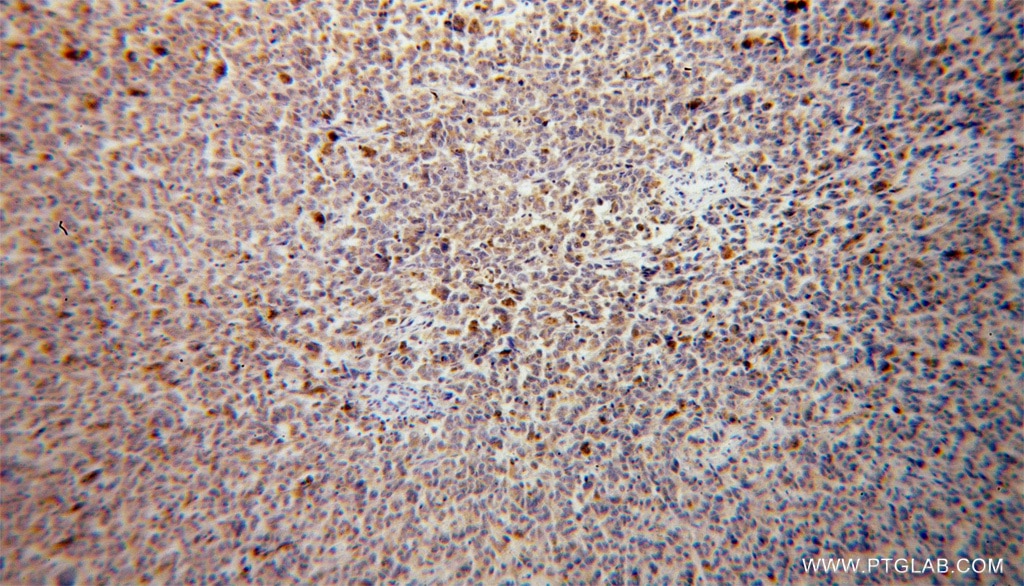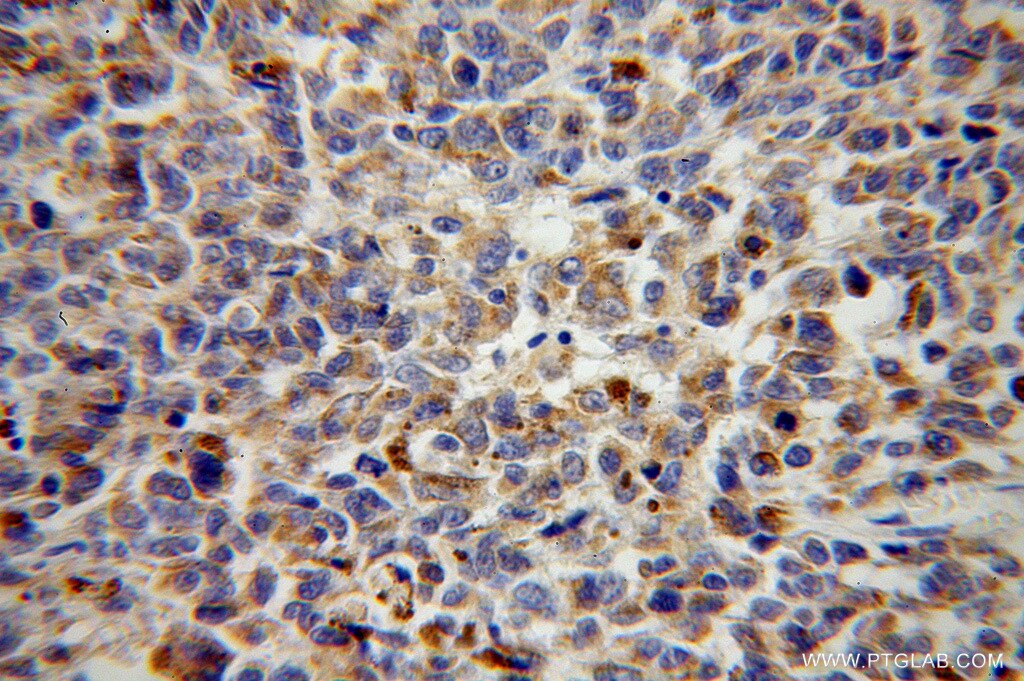Tested Applications
| Positive WB detected in | HEK-293 cells, C6 cells, NIH/3T3 cells, human liver tissue, HeLa cells |
| Positive IP detected in | HeLa cells |
| Positive IHC detected in | human liver cancer tissue, human malignant melanoma tissue Note: suggested antigen retrieval with TE buffer pH 9.0; (*) Alternatively, antigen retrieval may be performed with citrate buffer pH 6.0 |
Recommended dilution
| Application | Dilution |
|---|---|
| Western Blot (WB) | WB : 1:1000-1:4000 |
| Immunoprecipitation (IP) | IP : 0.5-4.0 ug for 1.0-3.0 mg of total protein lysate |
| Immunohistochemistry (IHC) | IHC : 1:50-1:500 |
| It is recommended that this reagent should be titrated in each testing system to obtain optimal results. | |
| Sample-dependent, Check data in validation data gallery. | |
Published Applications
| KD/KO | See 1 publications below |
| WB | See 2 publications below |
| IF | See 1 publications below |
Product Information
14495-1-AP targets VTI1B in WB, IP, IF, IHC, ELISA applications and shows reactivity with human, mouse, rat samples.
| Tested Reactivity | human, mouse, rat |
| Cited Reactivity | human, mouse |
| Host / Isotype | Rabbit / IgG |
| Class | Polyclonal |
| Type | Antibody |
| Immunogen | VTI1B fusion protein Ag5906 Predict reactive species |
| Full Name | vesicle transport through interaction with t-SNAREs homolog 1B (yeast) |
| Calculated Molecular Weight | 27 kDa |
| Observed Molecular Weight | 29 kDa |
| GenBank Accession Number | BC003142 |
| Gene Symbol | VTI1B |
| Gene ID (NCBI) | 10490 |
| RRID | AB_2216160 |
| Conjugate | Unconjugated |
| Form | Liquid |
| Purification Method | Antigen affinity purification |
| UNIPROT ID | Q9UEU0 |
| Storage Buffer | PBS with 0.02% sodium azide and 50% glycerol , pH 7.3 |
| Storage Conditions | Store at -20°C. Stable for one year after shipment. Aliquoting is unnecessary for -20oC storage. 20ul sizes contain 0.1% BSA. |
Background Information
Fusion between membranes is mediated by specific SNARE (soluble N-ethylmeleimide-sensitive factor attachment protein receptor) complexes. Two human SNARE proteins, VTI1A and VTI1B, are homologous to the yeast Q-SNARE Vtilp which is part of several SNARE complexes in different transport steps (PMID: 12067063). Both proteins had a distinct but overlapping localization. VTI1A is localized predominantly in the TGN, VTI1B in late endosomes (PMID:12067063; 21262811). VTI1B forms a SNARE complex with STX7, STX8 and VAMP8 which functions in the homotypic fusion of late endosomes. It is a component of the SNARE complex composed of STX7, STX8, VAMP7 and VIT1B that is required for heterotypic fusion of late endosomes with lysosomes. It has also been reported that VIT1B interacts with EpsinR, a protein involved in exocytic trafficking (PMID: 15371541).
Protocols
| Product Specific Protocols | |
|---|---|
| WB protocol for VTI1B antibody 14495-1-AP | Download protocol |
| IHC protocol for VTI1B antibody 14495-1-AP | Download protocol |
| IP protocol for VTI1B antibody 14495-1-AP | Download protocol |
| Standard Protocols | |
|---|---|
| Click here to view our Standard Protocols |
Publications
| Species | Application | Title |
|---|---|---|
Autophagy The STX6-VTI1B-VAMP3 complex facilitates xenophagy by regulating the fusion between recycling endosomes and autophagosomes.
| ||
mBio Syntaxin 11 Contributes to the Interferon-Inducible Restriction of Coxiella burnetii Intracellular Infection | ||
Front Cell Dev Biol The SNARE protein Vti1b is recruited to the sites of BCR activation but is redundant for antigen internalisation, processing and presentation |
Reviews
The reviews below have been submitted by verified Proteintech customers who received an incentive for providing their feedback.
FH Tongbin (Verified Customer) (08-25-2020) | This antibody had a specific band at VTI1B's predicted MW ~28 kDa.
|
